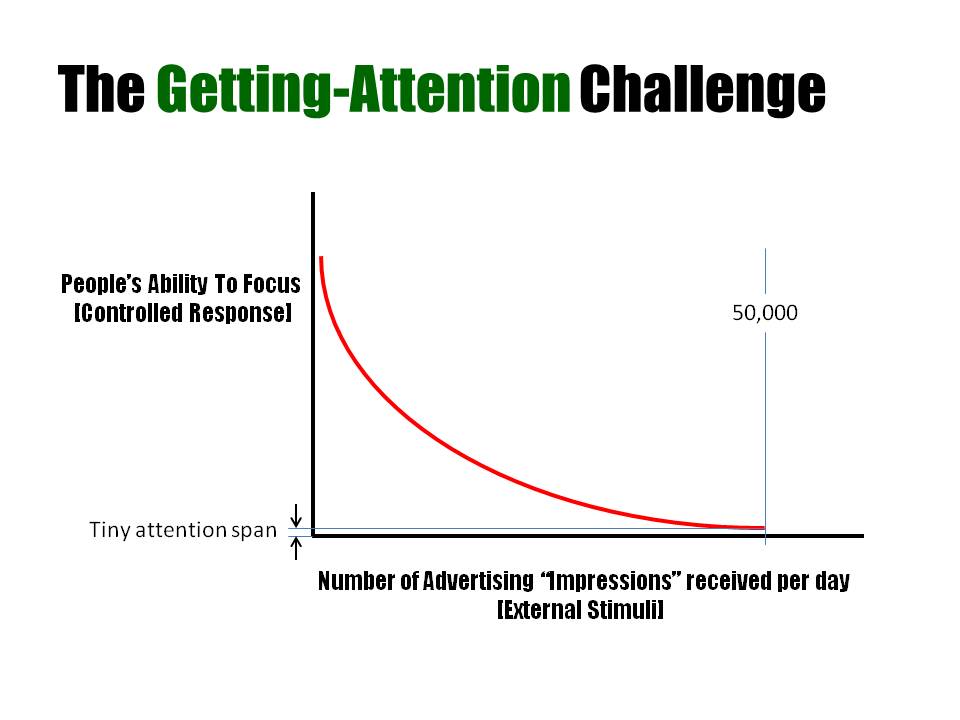Have you had trouble getting people's attention?
Is it becoming more difficult to get people's attention?
If you have had trouble getting people's attention and that problem seems to be worsening...you're not alone.
And, there's good reason for it.
Here's the picture...

Some experts say each of us is 'hit' by 5,000 advertising impressions a day...others say the number could be as high as 50,000 per day.
Regardless, 5,000 or 50,000, that's a lot of advertising hits per day. The ads hit our eyes and ears...as we drive down the street, look at magazines, get our hair cut, stop behind a bus, read our mail, look at our BlackBerry or iPhone, watch a movie at the theatre, visit a restaurant, buy gas for our car, rent a movie, watch TV, surf the Internet...logos, marketing messages, branding, branding, branding.
100,000,000 hours per weekend...that's how much time people in North America spend every weekend watching TV commercials.
We are mostly immune to the ads.
Let me rephrase that - our conscious minds are mostly immune to the ads. However, all those thousands and thousands of ads and branding pictures get through our eyes and ears and into our unconscious brains. And, that's where the problem starts. I mean - if you want to get people's attention - that's where the problem starts. All of the incoming stimuli - 5,000 or 50,000 advertising hits per day on top of numerable other stimuli Mother Nature, Man, and everyday life expose our brains to - gnaws away at our brains.
That's why it is so darned hard to get people's attention.